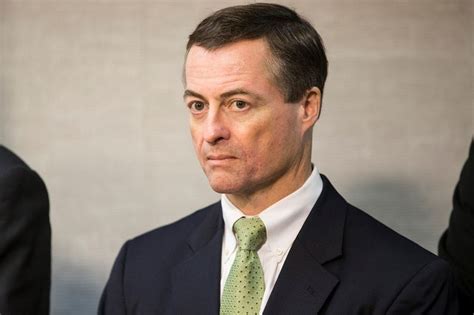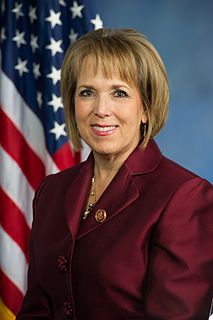A Quote by Amy Klobuchar
Working together, we can meet our shared goal to combat climate change. From harmonizing vehicle emissions standards to using our trading relationship to boost investment in clean energy, the actions the United States and Canada take together will help both nations meet international goals.
Related Quotes
Yes, this is hard. But there should be no question that the United States of America is stepping up to the plate. We recognize our role in creating this problem; we embrace our responsibility to combat it. We will do our part, and we will help developing nations do theirs. But we can only succeed in combating climate change if we are joined in this effort by every nation - developed and developing alike. Nobody gets a pass.
The Environmental Protection Agency's first-ever limits on carbon pollution from power plants will create clean- energy jobs, improve public health, bring greater reliability to our electric power grid, bolster our national security, demonstrate the United States' resolve to combat climate change and maybe even reduce our utility bills.
For in Asia and around the world, India is not simply emerging; India has already emerged. And it is my firm belief that the relationship between the United States and India - bound by our shared interests and values - will be one of the defining partnerships of the 21st century. This is the partnership I have come here to build. This is the vision that our nations can realise together.
Our relationship would never vary from its allegiance to the shared values, the shared religious heritage, the shared democratic politics which have made the relationship between the United States and Israel a special-even on occasion a wonderful-relationship ... The United States admires Israel for all that it has overcome and for all that it has accomplished. We are proud of the strong bond we have forged with Israel, based on our shared values and ideals. That unique relationship will endure just as Israel has endured.
The United States is strongly committed to the IPCC process of international cooperation on global climate change. We consider it vital that the community of nations be drawn together in an orderly, disciplined, rational way to review the history of our global environment, to assess the potential for future climate change, and to develop effective programs. The state of the science, the social and economic impacts, and the appropriate strategies all are crucial components to a global resolution. The stakes here are very high; the consequences, very significant.
While the agreement signed in Paris between 195 nations to combat climate change was historic and significant, it's still vague and lacks the ambition to truly meet the challenge. The next step is to move aggressively toward a transition to 100% clean renewable energy as quickly as possible (that means no fossil fuels, nuclear, or big hydro).
































